GODZILLA MINUS ONE (2023)
Post-war Japan is at its lowest point when a new crisis emerges in the form of a giant monster, baptised in the horrific power of the atomic bomb.
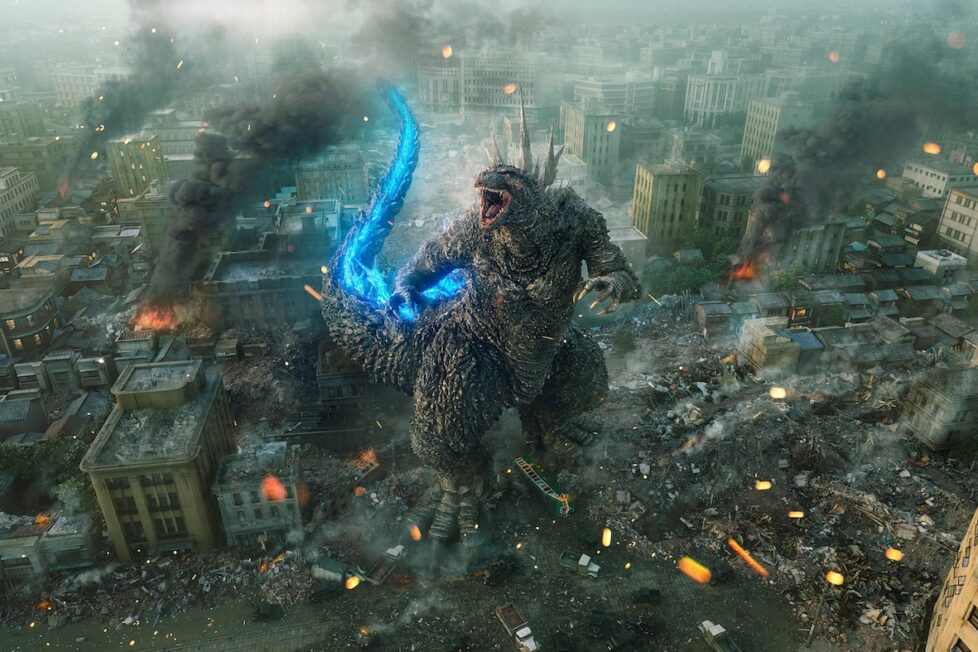
Post-war Japan is at its lowest point when a new crisis emerges in the form of a giant monster, baptised in the horrific power of the atomic bomb.


Godzilla Minus One / ゴジラ-1.0 does something both brave and remarkable. In a world where Western cinema is overloaded with sequels, prequels, and multiverses, this Japanese film dares to challenge conventions by offering what Hollywood studios seem to have forgotten: simplicity. This bold and remarkable kaiju film stands as a testament to the enduring power of straightforward storytelling.
While its most recent US predecessors have taken us through increasingly complicated and crowded journeys involving strange wormholes and nuclear physics (2014’s Godzilla being almost the sole exception), Godzilla Minus One offers none of that. There’s no complicated scientific explanation for Godzilla’s appearance. There’s no interaction between the King of Monsters and other kaiju. Godzilla simply appears in a war-weary Japan and causes chaos. There’s something beautiful and brave about a simple human versus monster story.
The film’s modest budget doesn’t mean it’s cheap. And while its special effects are indeed spectacular, most blockbusters offer similar or better visual grandeur. But what sets Godzilla Minus One apart is its ability to craft compelling characters, an engaging storyline, and a clear side to root for in the climactic battle.
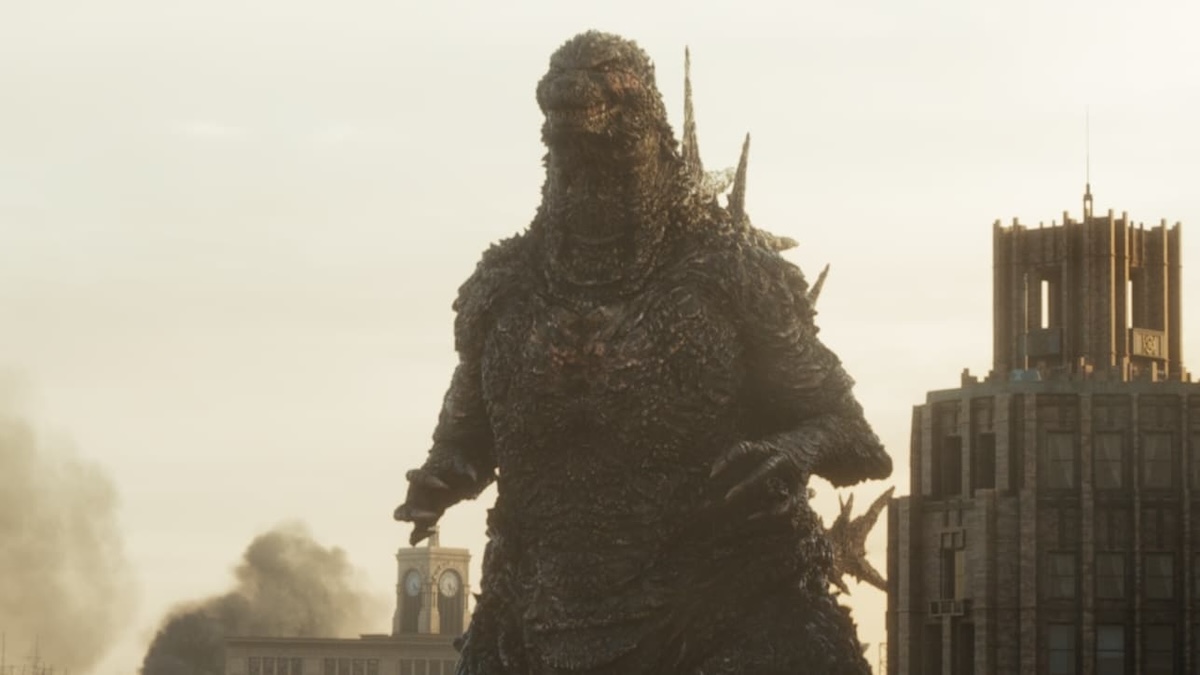
Set in Japan shortly after World War II, even earlier than the original Godzilla (1950), the film follows Koichi (Ryunosuke Kamiki), a disgraced former Kamikaze pilot who forms an unlikely makeshift family with Noriko (Miname Hambe), an orphaned young woman, and her adopted infant daughter.
Haunted by his inability to fire upon Godzilla during the initial attack, Kochi is consumed by guilt for the subsequent deaths of others on the island. This self-recrimination, coupled with his failure to fulfil his kamikaze mission and the horrific wartime atrocities he witnessed, has plunged him into a nightmarish reality. Tormented by these demons, Kochi declares, “My war is not yet over.”
Guilt about self-perceived cowardice in wartime and PTSD are the intertwined themes of Godzilla Minus One. Koichi even verbalizes the allegory Godzilla represents to him, seeing the monster as the spirit of the dead men he failed to save on Odo island. Through the monster, they both punish him and beckon him towards death.
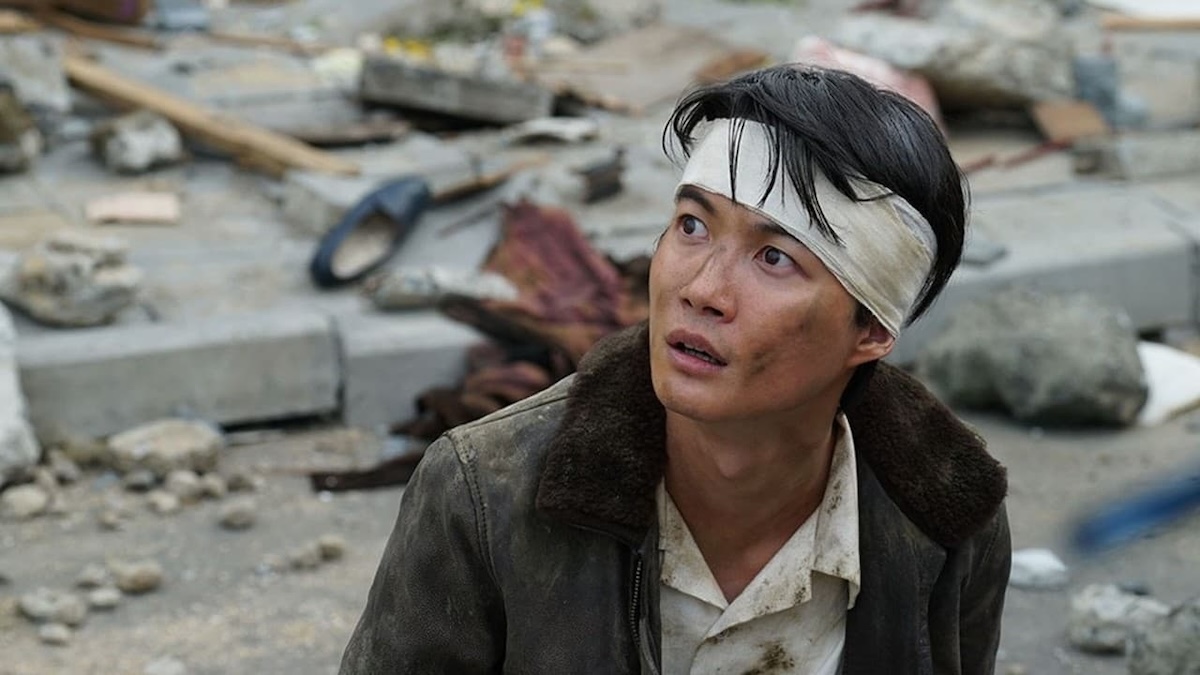
The interplay of allegory and the pairing of the monster with a human counterpart, whether as a parallel or a foil, has always been the driving force behind the humanity and heart of the best Godzilla films. This storytelling trope was precisely why the 2014 US remake was so well-received. While only a few members of your audience will connect with monsters, everyone can connect with well-written humans—especially humans who are dealing with universal and identifiable problems.
Godzilla satiates audience cravings on both the visceral and cerebral levels by juxtaposing a human narrative imbued with themes of guilt, redemption, and hope against the backdrop of a giant monster unleashing beautifully chaotic destruction. Steven Spielberg understood this with Jaws (1975) and Jurassic Park (1993), and Minus One’s writer-director and effects supervisor, Takashi Yamazaki, absorbed the lessons from one of cinema’s masters.
Speilberg’s influence is undeniably evident in the film’s most captivating moments. The scenes depicting Kochi’s minesweeping naval team anxiously awaiting the arrival of the legendary monster on their humble wooden boat will have you almost humming the melody of “Show me the way to go home.” Similarly, the large naval battles evoke memories of Quint’s famous monologue about the USS Indianapolis.
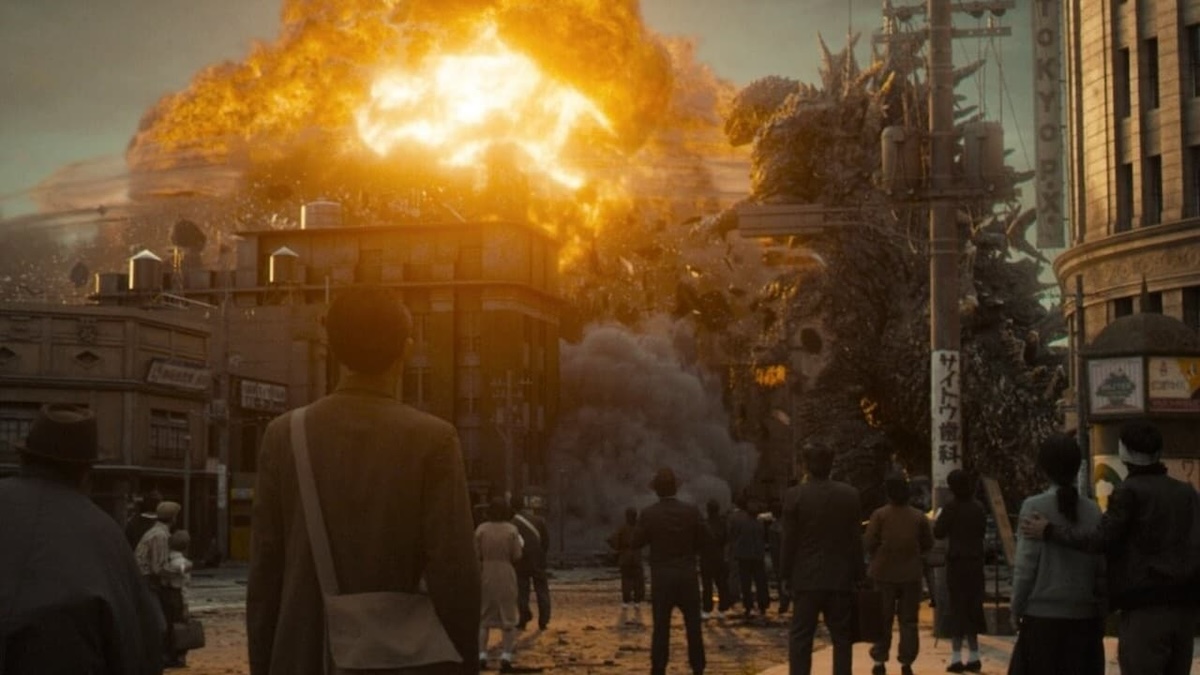
While the film offers engaging elements, it’s by no means perfect. The pacing falters in places, leading to scenes heavy on dialogue that may leave audiences yearning for the adrenaline rush of city-stomping or boat-shattering action sequences. In terms of pacing, this film falls short of the 2014 Godzilla, which crafted a human story within a taut, suspenseful narrative.
And despite the monster’s captivating design, particularly its haunting eyes, I’ve always favoured Spielberg’s approach of delaying the reveal of the dreaded entity until the last possible moment. An audience’s untamed imagination can conjure far more terrifying scenarios than even the most experienced special effects team could ever design.
But since the director insisted on showing us the monster, I’m relieved it was this kaiju we see. The creature’s golden spikes and textured skin evoke the most terrifying of dinosaurs, while its eyes simultaneously hint at primal instincts and the most evil of human intentions.
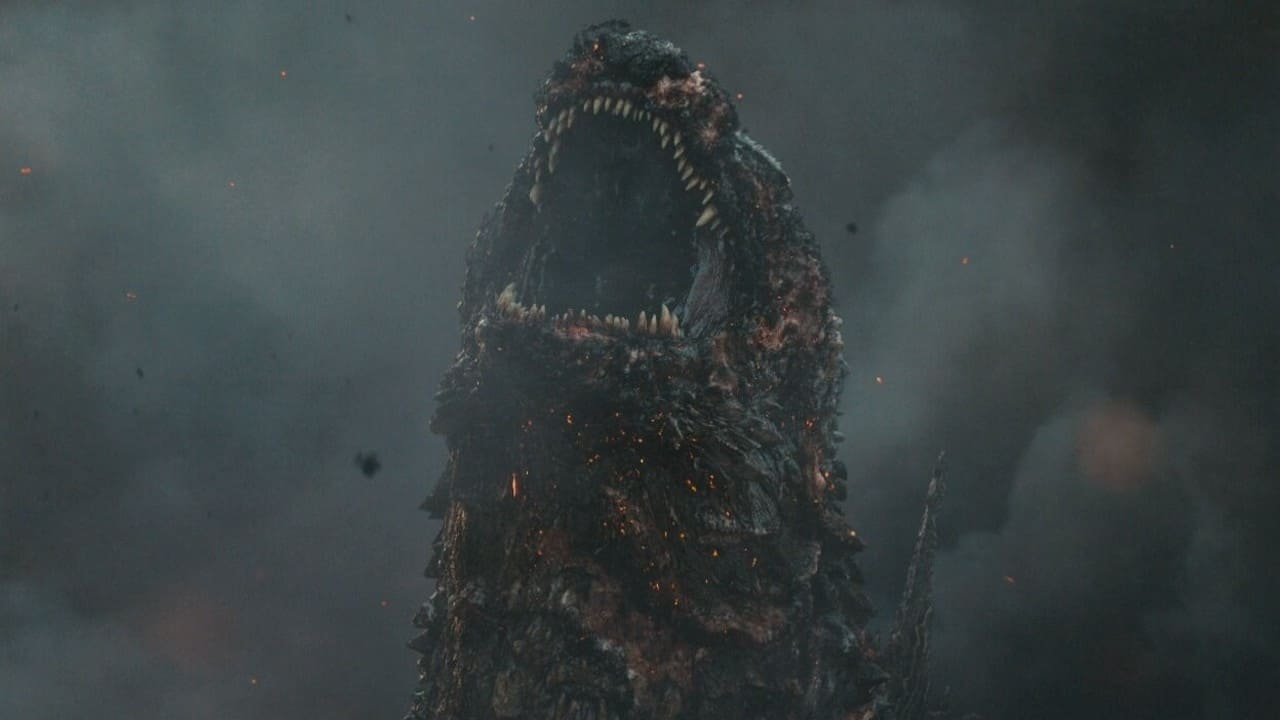
While the film also lacks surprises, offering predictable plot twists that audiences can easily anticipate, I find this aspect to be rather refreshing and, dare I say, courageous. Our society has become fixated on exploring the motivations of villains and tarnishing the heroism of heroes. There’s a persistent drive to re-evaluate and update established narratives and themes. Seeing a film that champions the simple human virtues of selflessness, family, and forgiveness is unusual today. But guess what? It still works!
These themes have endured in our greatest films, books, and artwork for centuries for a reason. Regardless of how many critics or sociologists may deny it, these themes resonate deeply with the universal human experience.
Infuse these themes with easter eggs from the original Godzilla, including its iconic musical theme, and you have the perfect blockbuster for both kaiju fans and people tired of typical blockbuster fare. While Gareth Edwards’ Godzilla, the first film in the ‘Monsterverse’, remains my top choice for the King of the Monsters, Minus One ranks a close second.
Whether you harbour nostalgia for the creature features and Spielbergian adventure films of the 1980s, are a connoisseur of war dramas and fantasy, or want cinematic experiences that evoke profound thoughts, emotions, and exhilaration, Godzilla Minus One is an enriching and fulfilling movie. Upon leaving the cinema, you’ll feel better about humanity. That’s a guarantee.
JAPAN | 2023 | 124 MINUTES | 2.39:1 | COLOUR | JAPANESE

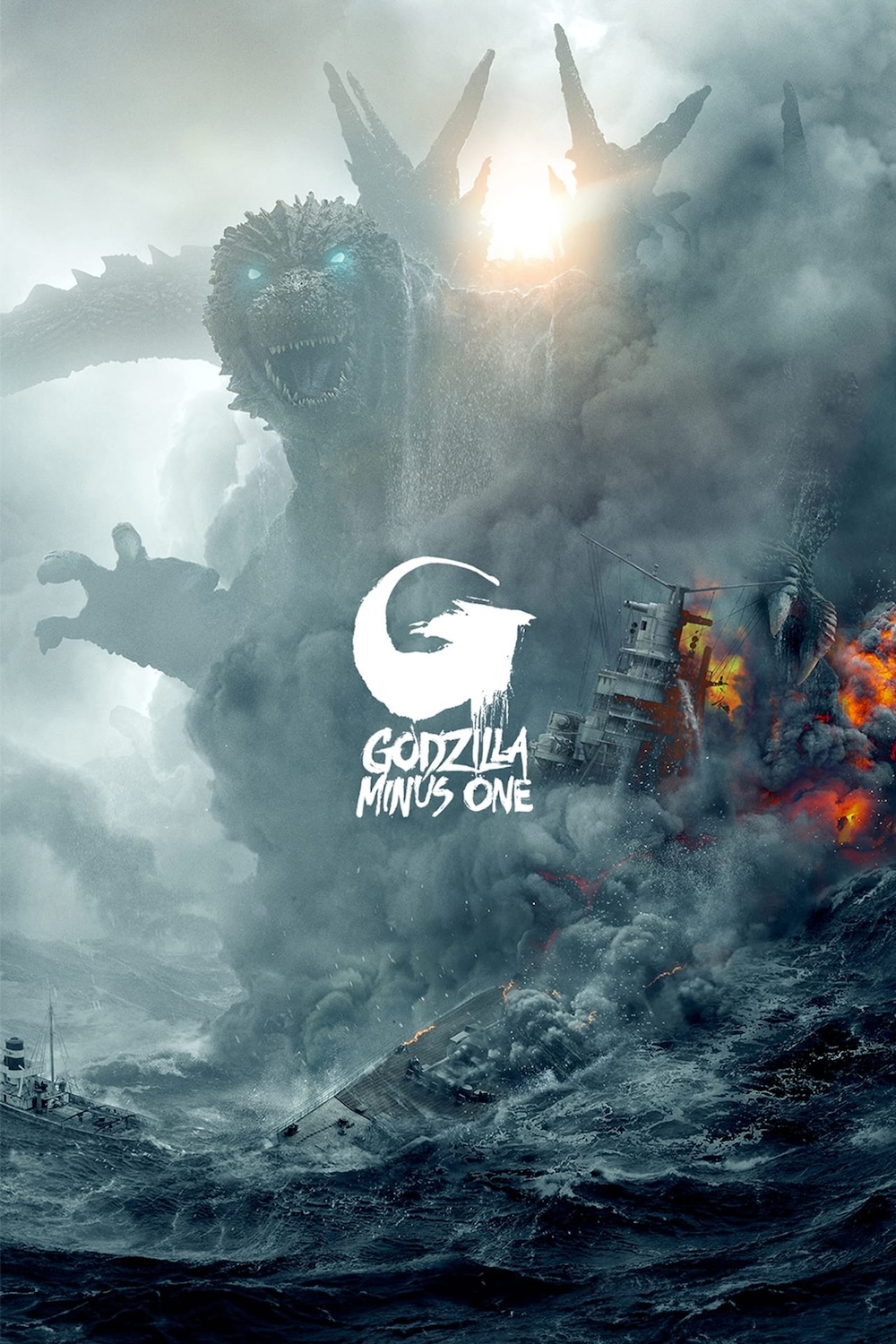
director: Takashi Yamazaki.
writer: Takashi Yamazaki (based on ‘Godzilla’ by Ishirō Honda).
starring: Ryunosuke Kamiki, Minami Hamabe, Yuki Yamada, Munetaka Aoki, Hidetaka Yoshioka, Sakura Ando & Kuranosuke Sasaki.
